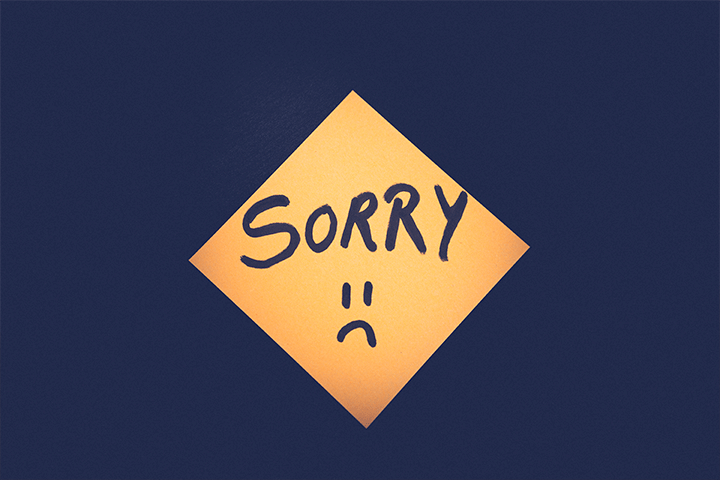Learning how to apologize is an essential part of mastering any language. In Arabic, saying sorry in arabic goes beyond a single word; it involves various phrases that express different levels of regret and formality. This guide covers the most common ways to say “I’m sorry in Arabic,” helping you choose the perfect phrase for any situation.
Common Ways to Say Sorry in Arabic
The most direct and widely used way to say “I’m sorry” is a single word that changes based on your gender.
| For a Male Speaker | For a Female Speaker |
|---|---|
| آسِف (Āsif) | آسِفَة (Āsifah) |
This phrase works for most everyday situations, like bumping into someone or arriving late. It is a simple and effective way to say sorry in arabic male or female.
Arabic Phrases to Say Sorry
For a more formal or serious apology, you can use these key phrases to express regret and apologize and say sorry in Arabic.
| Phrase (Arabic) | Transliteration | English Meaning |
|---|---|---|
| أَعتَذِرُ | A’tadhir | I apologize |
| أَنَا آسِف جِدّاً | Ana āsif jiddan | I’m very sorry |
| سَامِحْنِي | Sāmiḥnī | Forgive me |
| أَتَمَنَّى أَنْ تُسَامِحَنِي | Atamannā an tusāmiḥnī | I hope you can forgive me |
| أَعتَرِفُ بِخَطَئي | A’tarifu bi-khaṭa’ī | I admit my mistake |
| أَعتَذِرُ عَن خَطَئِي | A’tadhir ‘an khaṭa’i | I apologize for my mistake |
Phrases for Specific Situations
Sometimes you need to be more specific with your apology. Here are some common phrases for specific contexts.
- Sorry for the inconvenience: آسِف عَلى الإِزْعَاج (Āsif ‘ala al-iz’āj)
- Sorry for being late: آسِف عَلى التَّأْخِير (Āsif ‘ala al-ta’khīr)
- It’s my fault: إِنَّهُ خَطَئِي (Innāhu khaṭa’ī)
- I didn’t mean it: لَم أَقْصِد ذلِك (Lam aqṣid dhalik)
Phrases for Sympathy and Condolence
Beyond a simple apology, sometimes you say “sorry” to express sympathy or regret over a situation that isn’t your fault. Here’s how you can express your feelings using different Arabic phrases to say sorry:
| Phrase (Arabic) | Transliteration | English Meaning |
|---|---|---|
| أَنَا حَقّاً آسِف | Ana ḥaqqan āsif | I’m truly sorry |
| يُؤْسِفُنِي أَن… | Yusifunī an… | I regret that… (formal) |
| أَنَا مُتَعَاطِفٌ مَعَكَ | Ana muta’aṭifun ma’ak | I sympathize with you (for a male) |
| أَنَا مُتَعَاطِفَةٌ مَعَكِ | Ana muta’aṭifah ma’aki | I sympathize with you (for a female) |
| البَقَاءُ لِلَّهِ | Al-baqā’u lillah | May God keep you safe (used for condolences) |
Responding to an Apology
Knowing how to respond is just as important as knowing how to apologize. Here are some simple and common responses.
| Phrase (Arabic) | Transliteration | English Meaning |
|---|---|---|
| لا بَأس | Lā ba’s | It’s okay / Never mind |
| لا مُشْكِلَة | Lā mushkilah | No problem |
| عَفْواً | Afwan | You’re welcome / Excuse me |
| حَقَّك عَلَيَّ | Ḥaqqak ‘alayya | It’s my fault (a way to take responsibility) |
Cultural and Dialectal Differences
While most of these phrases work across the Arab world, some dialects have unique ways of saying sorry.
- In Egyptian Arabic, you often hear مَعْلِش (Ma’alesh), which is a versatile phrase that can mean “It’s okay,” “Don’t worry,” or even “Sorry” in some contexts.
- In many dialects, especially Levantine, a common and heartfelt phrase is حَقَّك عَلَيَّ (Ḥaqqak ‘alayya), which literally means “your right is on me,” and implies, “I’m in the wrong, and I’ll make it right.”
Conclusion
Learning to apologize and say sorry in Arabic is about more than just a single word. By using these common phrases, you can express sincere apologies, show empathy, and navigate social situations with greater confidence. The variety of expressions for sorry in arabic allows you to convey the perfect level of regret for any situation. Keep practicing, and you’ll soon master the art of apologizing in Arabic!
To continue your journey into Arabic language and culture, consider using a comprehensive learning platform. The Kaleela app is a great tool for learners, offering courses in both Modern Standard Arabic (MSA) and various dialects. It’s an excellent way to continue your studies and learn more about the fascinating stories and history of the Arab world. Download the Kaleela app today and start your next lesson!



